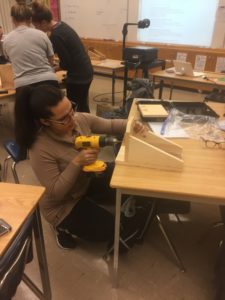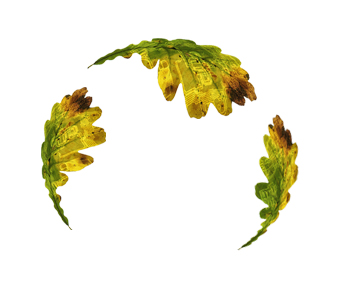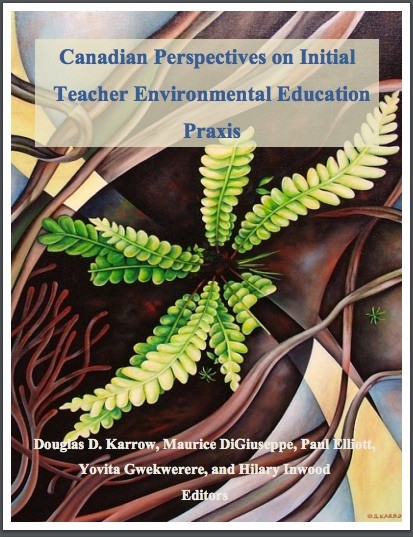Lots of compelling research is being done on ESE in Teacher Ed these days in Canada! A new publication entitled Canadian Perspectives on Initial Teacher Environmental Education Praxis by the Canadian Association of Teacher Education (CATE) in 2016 provides evidence of this. CATE is part of the Canadian Society for the Studies in Education; this is their first anthology of ESE research, and one of the first that shares studies by Canadian scholars in this field. Led by Doug Karrow (Brock) and Maurice DiGiuseppe (UOIT), it was co-edited by a team of faculty members from across Ontario, including Paul Elliott (TrentU), Hilary Inwood (OISE/UT), & Yovita Gwekwerere (Laurentian). With research from across the country, it builds on a study conducted by the CMEC in 2013 that tracked the status of ESD in faculties of education; this anthology provides new insights into how ESE & ESD are being theorized and implemented in pre-service education. For those who might like to read more, it can be accessed at http://cate-acfe.ca/
Enhancing ESE in Teacher Ed through School board Partnerships
Engaging affect: Using kahoot and experience with nature to teach EE
Dr. Darren Hoeg was charged with leading a one-off session on Environmental Education, embedded in the intensive teacher-preparation course for Secondary Science teacher candidates at the University of Alberta. He had 90 minutes to get a feel for the group of up to 100 students and turn their minds on to both the issues of the environment and how to tackle them through Science teaching. He turned to a real-time class survey to get the class thinking and participating. Using the Kahoot application platform, Darren asked the students nine different questions with four possible answers. They were able to interact using their smartphones or other digital devices. After each question, he used the anonymous results to lead a brief discussion. The questions touched on concerns of individual choice, dependence on technology and the Oil Sands, among others.
As the complexity of questions increased, from a social and philosophical standpoint, and with only 20 seconds allowed to respond to each question, there were fewer responses as the survey progressed. For example, the first question, about food choices, asked: When I make grocery purchasing decisions, I consider the following in my selection: Local (23%), Organic (13%), Price (59%) or Non-GMO (5%). Results are shown in parentheses. For this question 56 of the 58 participants responded. In contrast with a later question, only 44 of the 58 students responded:
Support is coming from the Deans of Education!
We’re getting support from many groups for ESE-TE; it is exciting to see this happening! In October members of our ESE-TE Standing Committee were invited to address the fall conference of the Association of Canadian Deans of Education (ACDE). Drs. Nicole Bell, Paul Elliott, Lucie Sauvé and Hilary Inwood spoke eloquently about the rationale for and praxis of ESE-TE in their Faculties of Education; this was supported by Dr. Nigel Roulet’s compelling talk about climate change and the important role education has to play in addressing it. Our timing was right – the Deans unanimously voted to write a new Sustainability Accord, a policy piece that will discuss the roles that Canadian Faculties of Education can (and should) play in ensuring a more equitable future for all living things on this planet. Check into the progress of this important policy on the ACDE’s website.
Going to bat for Bats at Brock!

A Brock teacher candidate assembling a Bat House.
Brock University has been running an optional course on Outdoor and Environmental Education (OEE) over a number of years. Most recently two sections ran in the fall of 2017. The teacher candidates represented PJ, JI and IS levels as well as both programs, namely consecutive and concurrent education.
For one of the courses, lead by Professor Doug Karrow, the teacher candidates were engaged in intersectional learning on conservation, invasive species, local ecosystems, taking action and incorporated elements of design technology. They were immersed in discussions on the history and current of conservation in Environmental Education, and then introduced to the role of bats in our ecosystem in southern Ontario, as natural pest controllers and pollinators, among other things. They were then introduced to the invasive species, white-nose fungus, which has a detrimental impact on the wellbeing of many bat species. Continue Reading
Interest in ESE in Teacher Ed is Growing!
There is no doubt that Environmental & Sustainability Ed (ESE) is growing in Canada! We have formalized our national network of post-secondary educators dedicated to better integrating ESE into preservice teacher education – as of last summer, our group is now a Standing Cttee of EECOM, Canada’s premier national organization dedicated to environmental learning. This will provide a strong foundation from which to build our work; EECOM has been at it for over 25 years. We already have plans in the works to offer a research day on ESE in Teacher Ed as part of EECOM’s conference next October in Cranbrook, BC…more details coming next month!
Welcome to our new blog!
Welcome to our new blog! This has been created to help share the voices of those working to improve the praxis of Environmental & Sustainability Education (ESE) in teacher education across Canada. It is part of the follow-up to the National Roundtable in ESE in Pre-service Teacher Education that took place in June 2016 at Trent University in Peterborough, Canada. This event brought together 75 delegates, all involved in different aspects of teacher education, from faculties of education, NGOs, Ministries of Education, and other policy-making organizations, all dedicated to improving teaching and research in ESE in teacher education. They created a National Action Plan to guide this work moving forward. This blog will track the progress on this work, sharing the challenges and victories as it progresses. But it also aims to share snapshots of what ESE in TE looks like, so please write up a short entry (less than 400 words) to tell others about your research, teaching, planning or programming; photos to accompany these are welcomed! Send your entries to contact@eseinfacultiesofed.ca


